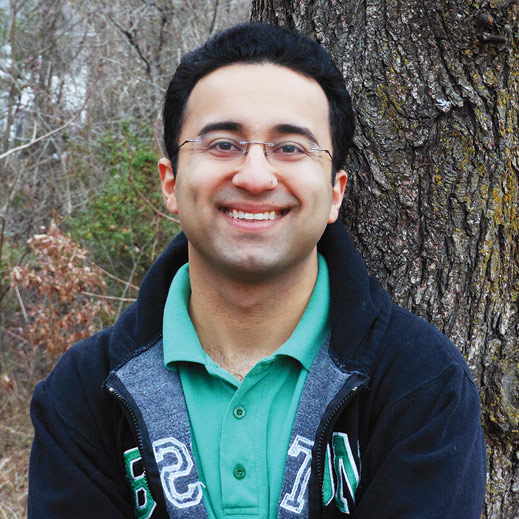Ali Wyne was a math whiz whose favorite childhood present was a graphing calculator. His plans included majoring in mathematics in college, but things changed on September 11, 2001, when he was a junior in high school.

The 9/11 attacks “made me realize how ignorant I was of international affairs,” Wyne recalls. “It was clear something momentous had happened, but much of the ensuing discussion about global security flew over my head.” He deferred his MIT admission to spend a year reading about American foreign policy, interning at Amnesty International, and visiting his parents’ families in Pakistan.
The rethinking prepared Wyne to earn dual bachelor’s degrees in political science and management science, win the prestigious Karl Taylor Compton Prize as a senior, and forge strong connections with professors like Suzanne Berger, Stephen Van Evera, and Joshua Cohen.
Since graduation, one of his primary areas of focus has been the U.S.-China relationship, which Wyne sees as central to 21st-century geopolitics. As a junior fellow with the Carnegie Endowment for International Peace’s China program and later as a researcher at Harvard University’s Belfer Center for Science and International Affairs, he has closely studied China’s often opaque decision-making processes and cultivated a network of diplomats and analysts who can share firsthand knowledge of Chinese politics and society.
An avid writer, Wyne has been published in the Washington Post, the Financial Times, Foreign Policy, and numerous other outlets, and he coedited a new MIT Press book, Lee Kuan Yew: The Grand Master’s Insights on China, the United States, and the World, with Harvard’s Graham Allison and the eminent diplomat Robert Blackwill. In 2013, Diplomatic Courier magazine selected him for its list of young foreign policy leaders. He is also a contributing analyst at Wikistrat, a “virtual consultancy” of strategists around the world. “We consider current issues like the civil war in Syria and hypothetical scenarios like governmental collapses, aiming to distill consensus judgments about possible futures and rough probabilities,” he says.
Wyne, who lives in Washington, D.C., and maintains a love of table tennis developed at Burton Conner House, seeks to tackle both analysis and policy making as his career progresses. “I hope to contribute to shaping an American role in the world that increasingly emphasizes exercising power with others rather than over them,” he says.
A tall order, but his Institute experience helped him “reconceptualize what’s possible,” Wyne says. “Whatever obstacles there are to addressing the world’s challenges, human ingenuity is not one of them.”
Keep Reading
Most Popular
Large language models can do jaw-dropping things. But nobody knows exactly why.
And that's a problem. Figuring it out is one of the biggest scientific puzzles of our time and a crucial step towards controlling more powerful future models.
The problem with plug-in hybrids? Their drivers.
Plug-in hybrids are often sold as a transition to EVs, but new data from Europe shows we’re still underestimating the emissions they produce.
Google DeepMind’s new generative model makes Super Mario–like games from scratch
Genie learns how to control games by watching hours and hours of video. It could help train next-gen robots too.
How scientists traced a mysterious covid case back to six toilets
When wastewater surveillance turns into a hunt for a single infected individual, the ethics get tricky.
Stay connected
Get the latest updates from
MIT Technology Review
Discover special offers, top stories, upcoming events, and more.